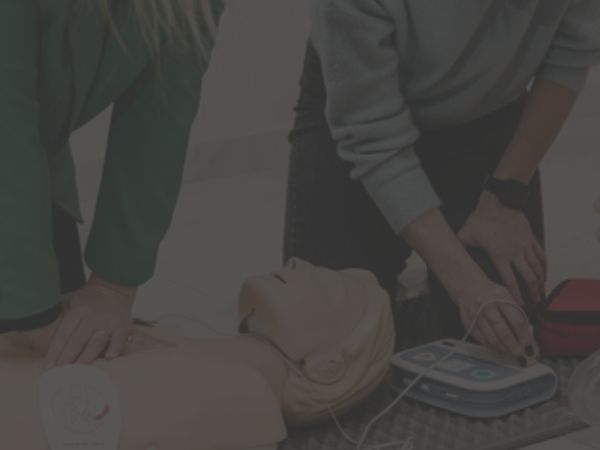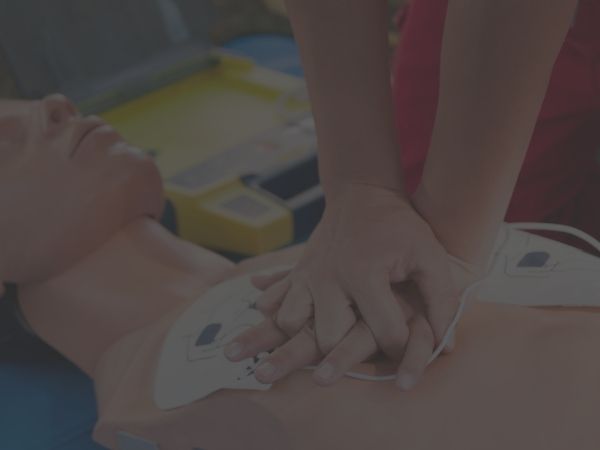Your cart is currently empty!
What Is the Best Nursing Field for 2023? 12 Fastest Growing Specialties
Nursing is an ever-changing profession, but one thing is very clear. Nurses continue to be in demand with no signs of slowing. And nurses have greater opportunities for specialization than they used to with many interesting and fast-growing nursing fields to choose from. Here are some you’ll want to learn more about.
Is Nursing a Good Career Choice in 2023?
 The nursing field is ever-evolving. Most job roles are high-paying and in demand. The AMN Healthcare survey found an astounding 81% of nurses surveyed are satisfied that they made the right career choice for themselves.
The nursing field is ever-evolving. Most job roles are high-paying and in demand. The AMN Healthcare survey found an astounding 81% of nurses surveyed are satisfied that they made the right career choice for themselves.
As with any career choice, some people are more suited than others to the nursing field. But generally speaking, nurses have the following nurse skills, in addition to nursing know-how. They’re excellent at managing stress and are energetic. They’re strong communicators, detail-oriented, and problem-solvers. They work well with others to make exceptional patient care possible.
The nursing field can get very confusing with titles being used interchangeably and nurses having several titles.
This is in part because nursing is currently undergoing some significant evolution, creating some overlap. But it’s also because certain nursing qualifications can open up a variety of nursing jobs and specialization opportunities.
Is the Nursing Field Growing?
The nursing field has grown and diversified over the past 20 years so much that the Bureau of Labor Statistics has had to divide nursing up into categories to show how individual nursing fields are growing.
According to BLS.gov, the need for registered nurses (RN) is expected to grow 6% over the next 10 years, as fast as average. On the other hand, the need for Nurse Anesthetists, Nurse Practitioners, and Nurse Midwives is expected to rise by 40% during the same time period.
The need for entry-level nursing, licensed practical and vocational nurses (LPN), is also growing but has slowed a little in the past five years. A person can train to become an LPN in 12 to 24 months, making it an easier place to start.
Since nurses often progress from entry-level to more advanced nursing, this shows strong job prospects for both entry, intermediate, and advanced nursing careers.
How Many Fields of Nursing Are There?
This will depend on the country where you practice, and new fields are likely to emerge as the medical fields push toward greater and greater specialization. Since nursing is ever-changing, it’s hard to pin down a number. But here’s a good look at the diversity of nursing.
- Certified Nursing Assistant (CNA)
- Licensed Practical Nurse (LPN), Vocational Nurse
- Registered Nurse (RN) (Medical Nurse)
- Nurse Practitioner (NP)
More advanced Nurse Certifications include:
- Clinical Nurse Specialist
- Certified Nurse Anesthetist (CRNA)
- Doctor of Nursing Practice (DNP)
- Advanced Practice Registered Nurse (APRN)
- Certified Nurse Midwife (CNM)
What Are Nursing Fields?
Nurses can obtain additional education and/or specialization to earn additional credentials and titles like these. When someone is speaking of nursing fields, they’re talking about nursing specialization, such as:
- Cardiac Nurse
- Pediatric Nurse
- ICU Nurse
- Oncology Nurse
- Trauma Nurse
- Nurse Educator – Professor of Nursing, Nurse Instructor, etc.
- Clinical Nurse Leader – Chief Nursing Officer (CNO), Manager, Director
- Other Administrative Roles – You might be handling prior authorizations at an insurance company or helping a non-profit develop community health programs.
Specializing and getting advanced education typically increases earning potential. It can also help a nurse get into a nursing role they really love.
Which is the Highest Type of Nurse?
 The Advanced Practice Registered Nurse (APRN) is the highest type of nurse. This is an RN that has a Master’s Degree in Science in Nursing (MSN) or a Ph.D. called Doctor of Nursing Practice (DNP). They can both become Nurse Practitioners (NP) after passing their licensing exams.
The Advanced Practice Registered Nurse (APRN) is the highest type of nurse. This is an RN that has a Master’s Degree in Science in Nursing (MSN) or a Ph.D. called Doctor of Nursing Practice (DNP). They can both become Nurse Practitioners (NP) after passing their licensing exams.
So they will be able to diagnose, treat, and prescribe to patients similar to a Medical Doctor but within a defined scope of practice. But they’re likely to hold more advanced roles and specializations that allow them to take on high positions:
- Nurse Anesthetist
- Clinical Nurse Specialist
- Nurse Midwife
- Chief Nursing Officer (CNO)
- Nurse Researcher
- Nursing School Professor / Nurse Educator
These open up higher pay for the RN that may not be attainable if they stay exclusively in an NP clinical role.
What Is the Best Nursing Field for RNs?
The best nursing field is one where you can thrive in your nursing role. If it’s not a good fit for you, then it’s not the best. Factors like pay, hours, responsibilities, level of physical fitness required, where the nursing jobs are located, and more can influence whether it’s the best.
With that said, according to NurseJournal.org, the best based on pay alone are the top 10 as follows, not necessarily in this order:
- Informatics Nurse
- Nurse
- Nurse Anesthetist
- Psychiatric Mental Health
- Nurse Practitioner
- Nurse Midwife
- Family Nurse Practitioner
- Clinical Nurse Specialist
- Travel Nurse
- Nurse Researcher
What Type of RN is Most in Demand & What Do They Do?
Various nursing fields are taking off. Some of the fastest-growing nursing roles include these specialties.
1. Nurse Anesthetist
A nurse anesthetist will administer pain medication including those that “put people to sleep” for a procedure. They work closely with an anesthesiologist (a medical doctor) who determines how much anesthesia a person needs. The anesthetist monitors patients’ vital signs during surgery and in the recovery room, similar to an Anesthesiologist. They may also educate the patient about the types of anesthesia, risks, and what to expect. A nurse Anesthetist will need an RN license and a minimum of an MSN that specializes in anesthesiology. They must acquire a license to become Nurse Anesthetists. This nursing professional consistently ranks as the highest-paid nurse with an average base pay of $168, 241 per year, according to Payscale data.
2. Psychiatric Nurse Practitioner
This nurse can do anything a nurse practitioner can do but in a mental health setting. They often work with people with dementia, mood disorders, and addiction. You need at least an MSN and an RN license. You’ll need to complete a nurse practitioner program that focuses on mental health.
3. Trauma Nurse / Critical Care Nurse
You’ll work with an emergency response team caring for someone who is in critical condition or unstable. You’ll be trained to treat a trauma patient. You may administer pain meds, wound care, and blood transfusions.
To become a trauma nurse, you need an associate degree or BSN before obtaining your RN license. After two years, the RN can become a certified emergency nurse or similar critical care credential.
4. Acute Care Nurse / Critical Care Nurse
Acute Care Nurse is a broad team of nurses who specialize in caring for patients with acute illnesses. These patients usually have chronic conditions like diabetes, heart disease, epilepsy, or kidney disease. They’ve either had a significant episode or the condition has worsened to the point that they need specialized medical care.
Some sub-specialties within this nursing field include neonatal, cardiac, cardiac surgery, pediatric, geriatric, dialysis, telehealth, and nursing administration.
5. Family Nurse Practitioner
Like a family practice doctor, a family nurse practitioner is a general practice nurse who supports patients through wellness, routine screening, preventive care, and routine sick care from birth to advanced age. Approximately 65% of nurse practitioners choose this field of nursing. They are required to have an MSN and have completed a BSN. However, bridge programs are available. These allow people who got their bachelor’s or associate’s degree in something else to take some pre-requisite courses and then start an MSN program.
6. Nurse Midwife
A nurse midwife specializes in childbirth and pre/post-partum care but also women’s reproductive health from puberty through menopause. A Midwife who is a Nurse Practitioner can do almost anything an OB-GYN can.
They don’t perform surgery such as C-sections. They also can’t provide epidurals, although a nurse anesthetist on staff could. An anesthesiologist (medical doctor) would need to order it, however, so nurse midwives often work with doctors and other medical professionals to provide comprehensive care.
Nurse midwives usually specialize in natural childbirth methods and would refer women to an OB-GYN if the mother was at high risk of complications.
7. Nurse Researcher
A nurse researcher organizes and conducts studies. They analyze data and report their findings. There are a variety of opportunities for nurse researchers to work for pharmaceutical companies, medical device companies, regulatory agencies, hospitals, and not-for-profit organizations.
8. Travel Nurse
Travel nurses can have various levels of qualifications and can be in any one of the fastest-growing nursing fields. The defining factor is that they move around where they’re needed. Travel nurses may come in so another nurse can take maternity or extended sick leave. They often work in rural communities that may struggle due to extended vacancies. For nurses who have a “free spirit”, this can be a great way to see the US or the world and try different nursing fields to find one that really interests them. An assignment could be anywhere from six weeks to a couple of years.
Travel nursing is part of the gig economy, so you’re often self-employed. But you usually work through an agency that keeps jobs lined up and manages some logistics.
9. Informatics Nurse
Informatics nurses help healthcare companies analyze and manage health-related data and communications. They combine nursing with computer science, analytics, and technology. Generally, their goal is to build and manage diagnostic and other technologies to enhance patient care, cut costs, detect disease earlier, etc.
An informatics nurse has at least an RN with a minor in computer science/information technology.
10. Nurse Educator
A nurse educator teaches future nurses and nursing assistants in an academic setting or in the form of refresher courses for a healthcare company. They may also spend time doing research or writing grants.
11. Infection Control/Prevention Nurse
An infection control nurse specializes in identifying, monitoring, and preventing infectious diseases. This is typically someone with an RN who obtains certification in infection prevention and control (CIC).
12. Geriatric Nurse
Geriatric nurses work closely with caseworkers, families, social workers, nursing homes, carers, hospices, and other healthcare professionals to care for and treat the elderly.
Nurse practitioners are usually preferred for this role because of the complexity involved in coordinating geriatric care. But those in the field often start as LPNs or RNs working with geriatric patients. They then obtain additional education and certification to enter this role.
What is the Easiest Nursing Field?
Nurses often rank these nursing fields as having the lowest levels of stress:
- Travel Nursing
- Clinic Nurse
- Nurse Educator
- School Nurse
- Nurse Administrator
With that said, “easiest” probably depends on who you ask.
What Education Do Nurses Need?
To become an RN, you need a minimum of an Associate’s in Nursing (ASN or ADN). But getting a bachelor’s in nursing (BSN) is generally preferred. You will then need to pass the NCLEX-RN exam from the National Council of State Boards of Nursing (NCSBN.org) to become a licensed RN. ASN typically takes two to three years, while BSN is a four-year program for those going full-time.
As demonstrated above, greater opportunities often open up with higher levels of education. To become a nurse practitioner, one of the most common paths is to start as an RN who already has a BSN and enroll in a nurse practitioner graduate program.
Continuing Education Credits and Certifications
In addition to earning advanced degrees, nurses are required to complete continuing education credits to maintain their licenses. Some of these courses may be specific to their nursing field. For example, a cardiac nurse may take a course like Heart Failure Lifestyle and Self-Care. Other credits… everyone should take because they apply in almost any setting where a nurse would work.
- Basic Life Support (BLS) Certification
- Advanced Cardiac Life Support (ACLS) Certification
- Bloodborne Pathogens (BBP) Certification
- Pediatric Advanced Cardiac Life Support (PALS) Certification
- CPR, AED, and First Aid Certification
These courses align with the most up-to-date ILCOR guidelines and best practices, are 100% online, and count as AMA Category 2 Continuing Medical Education Credits (CME). In addition to being CME, these are also additional certificates that every nurse should have on their resume. They demonstrate dedication to continually learning advanced methods for supporting exceptional patient care, regardless of the nursing field you choose. Let us know how you have used your knowledge while caring for your patients – share in the comments below or in our online community.
Keep Reading
2 responses
Yes, we do need all the different specialties! Thank you for your comment.










Need all of them